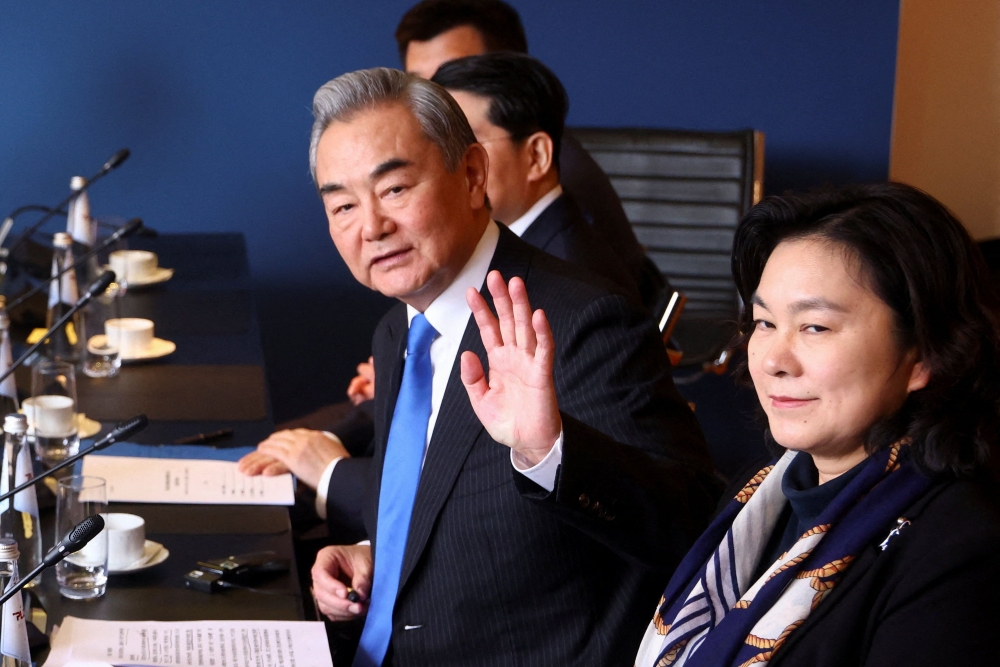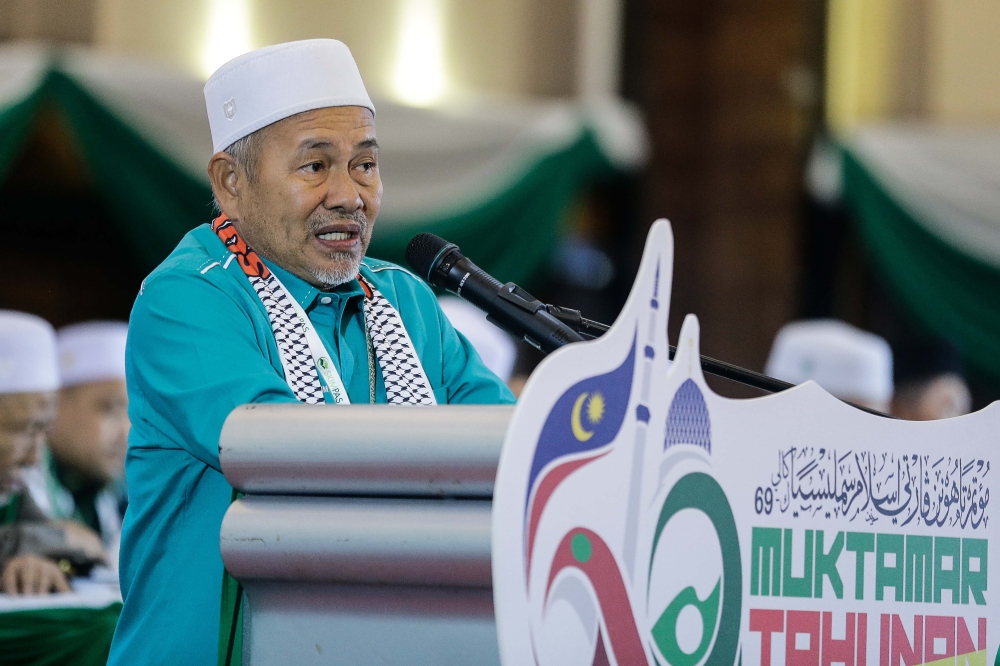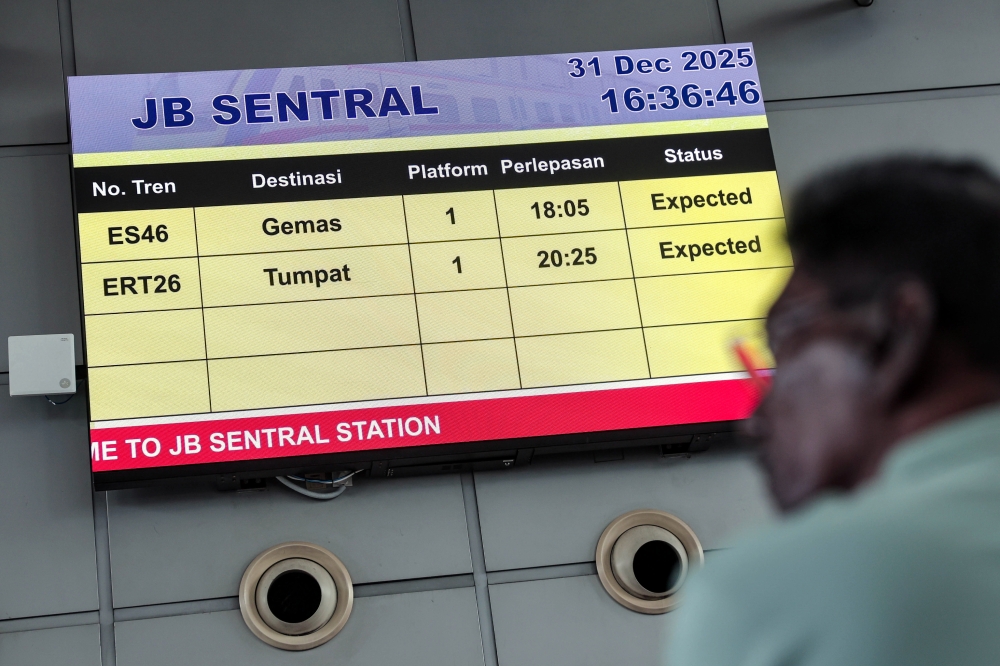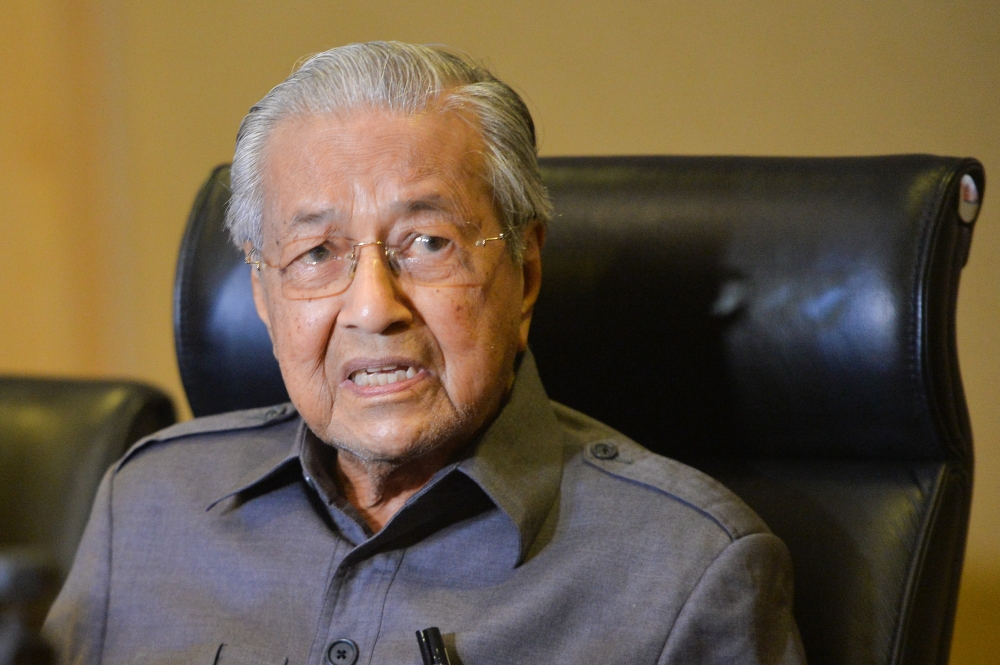KUALA LUMPUR, Feb 16 — Former prime minister Tun Dr Mahathir Mohamad will be advised to skip the Malaysian government’s Royal Commission of Inquiry (RCI) on the sovereignty of several islets near Johor and Singapore, if former chief justice Tun Md Raus Sharif remains as the RCI chairman, Dr Mahathir’s lawyer said today.
Muhammad Rafique Rashid Ali claimed that the federal government’s February 14 appointment of Raus as chairman of the Batu Puteh RCI was a “violation of natural justice” as he is allegedly an “interested party”.
Rafique said this was due to past events where Dr Mahathir had in 2017 mounted a court challenge on the legality of Raus’ extended tenure as a judge and Raus’s 2018 resignation as chief justice when Dr Mahathir returned as prime minister.
Rafique also said it is “common knowledge” that the RCI revolves around the Malaysian government’s May 31, 2018 decision — when Dr Mahathir was prime minister — to withdraw two review applications at the International Court of Justice (ICJ) against the latter’s May 23, 2008 decision on the sovereignty of Batu Puteh.
“The RCI should be seen as clean and impartial so that the public will not question the credibility of the same,” Rafique wrote in a statement today.
Rafique claimed that the appointment of Raus as the RCI’s chairman has “created a real danger of bias in which truth and justice will not prevail”, and further claimed this would erode public confidence and affect the credibility of the RCI’s findings.
“In the upshot, due to reasons aforesaid, in the name of fairness and justice for our client Tun Dr Mahathir bin Mohamad, we would humbly request that the Government replace the Chairman of the RCI with someone who is not conflicted or that Tun Md Raus Sharif, in this pursuit of truth, to recuse himself from the position.
“Failing which, we would be inclined to advise our client Tun Dr Mahathir bin Mohamad to decline participating in the RCI,” he concluded.
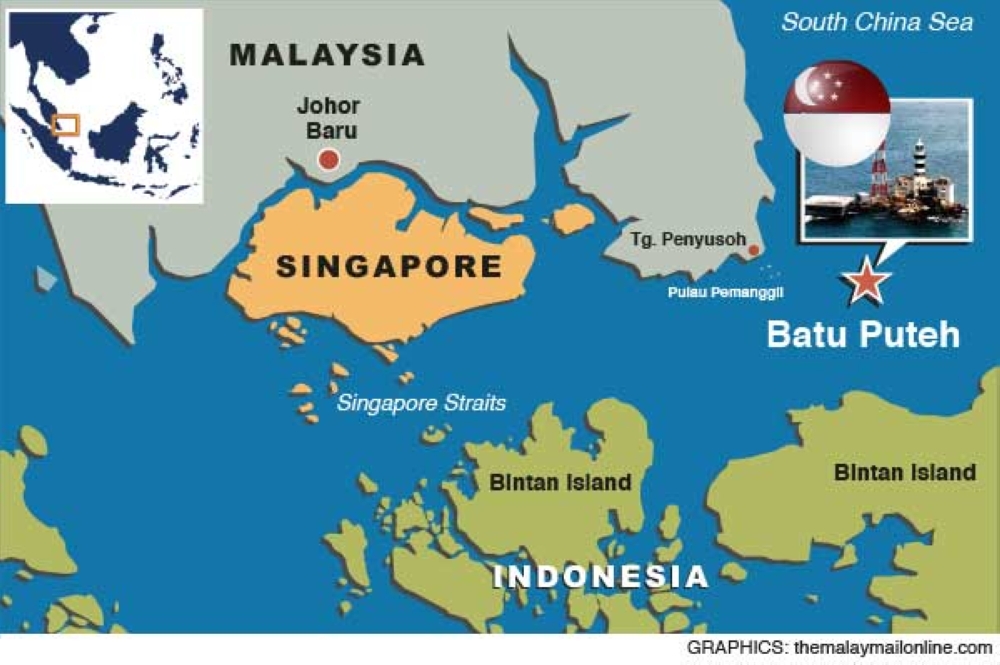
In his statement, Rafique had referred to Dr Mahathir's filing of a judicial review in the High Court in Kuala Lumpur in 2017 to challenge the appointment of Raus as an additional judge in the Federal Court as he had reached the age of 66 years and six months.
Rafique also said Raus had on May 15, 2018 met with then prime minister Dr Mahathir to express his intention to resign as chief justice, and that Raus on June 7, 2018 then sent a letter of resignation to the Yang di-Pertuan Agong which was approved on June 11, 2018. The resignation took effect on July 31, 2018.
Raus's tenure as chief justice was initially supposed to end in August 2017 when he hit the constitutional age limit of 66 years and six months, but he was appointed as an additional judge in the Federal Court by the Najib administration and his term was extended for three more years until August 2020.
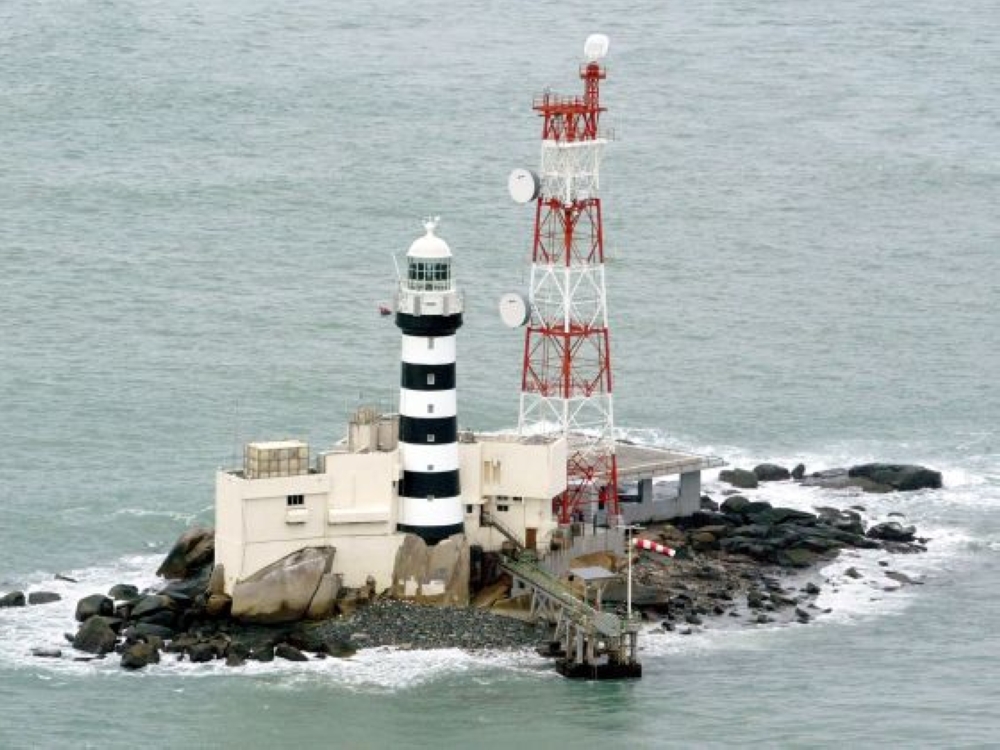
On February 14, the Malaysian government announced that it had received the royal assent from the Yang di-Pertuan Agong to set up the RCI to study the handling of matters related to the sovereignty case of Batu Puteh, Batuan Tengah and Tubir Selatan, and that royal assent was also given for the appointment of the RCI's seven members including Raus as its chairman.
Batu Puteh (otherwise known as Pedra Branca) is a granite island, while Batuan Tengah or Middle Rocks are some rocks that are permanently above water, and Tubir Selatan or South Ledge is a low-tide elevation. Malaysia and Singapore were previously locked in a territorial dispute at the ICJ over these three maritime features.
On May 23, 2008, the ICJ ― which is the United Nations' principal judicial organ ― delivered its decision by finding that Batu Puteh's sovereignty belongs to Singapore, and sovereignty over Middle Rocks belongs to Malaysia.
The ICJ also decided that sovereignty over South Ledge belongs to the country in the territorial waters of which it is located instead of awarding it to either Malaysia or Singapore, after having noted that South Ledge falls within the apparently overlapping territorial waters generated by Batu Puteh and by Middle Rocks.
On February 2, 2017, Malaysia filed an application for revision of the ICJ's 2008 judgment on sovereignty over Batu Puteh, citing the discovery of three documents which allegedly establish a new fact. This was filed within the 10-year deadline from the date of the 2008 judgment.
On June 30, 2017, Malaysia filed a separate application to request the ICJ to interpret its 2008 judgment, seeking to have the ICJ declare the waters surrounding Batu Puteh remain within Malaysia's territorial waters and to also declare that South Ledge's sovereignty belongs to Malaysia.
Ahead of the ICJ's June 2018 hearing of Malaysia's June 2017 application, Malaysia on May 28, 2018 informed the ICJ that both countries had agreed to discontinue proceedings for this case.
Datuk Seri Azalina Othman Said, now the minister in the Prime Minister's Department in charge of law and institutional reforms, had in October 2022 prepared a list of frequently-asked-questions on the Batu Puteh case.






